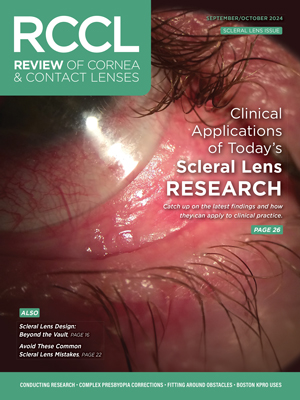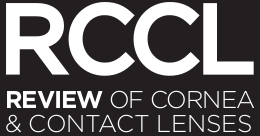 |
Though country singer Kelly Clarkson’s song lyrics, What doesn’t kill you makes you stronger, are a far cry from being linked to anything medical in nature, there are still two applications she more than likely did not think of when lifting that line from Nietzche. First, her song could actually stand as the theme song for exposure to pathogens: inoculations ultimately make us stronger—if they don’t kill us first. Second, there is some relevance attached to the legislation that was recently introduced by Senator Bill Cassidy, MD. The Consumer Health Protection Act (S.2777)—which aims to modify the 2003 Fairness to Contact Lens Consumers Act (FCLCA)—at first glance appeared to be problematic for us as eye care practitioners; but now, it may in fact yield some good with the modifications that were recently introduced.
A Historical Perspective
In 2003, the FCLCA was introduced to organize the way in which contact lenses were dispensed and by whom. The legislation’s initial intent was to improve the level of protection for consumers; it requires practitioners to provide patients with a copy of their lens prescription so they might be able to look around for where they want to purchase their contact lenses from, if they so desire. As part of the Act, the Federal Trade Commission (FTC) was given the power to enforce the rules on both prescribers and sellers of contact lenses. Overall, the Act was implemented with the goal of reducing barriers for retail competition.
Unfortunately, the American Optometric Association revealed several examples of widespread abuse of the current FCLCA legislation scope by sellers, prompting the introduction of the more recent Contact Lens Consumer Health Protection Act of 2016. Its aim is to provide new patient safety requirements and accountability for online retailers. A number of significant modifications exist, including an allowance for the prescriber to email, fax or phone prescription confirmations to potential sellers depending on which is more convenient, thus avoiding the troubling “robo-calls” of the past. Additionally, this legislation is expected to help assure that a prescription is filled exactly as it is written. The legislation also establishes a hotline for patient safety, allowing prescribers to provide sellers with patient health information. Fines to sellers who do not adhere to the rules will be increased to $40,000 per infraction. The CDC will study the public health impact and direct health costs to online sales and abuses.
Opposing Views
Opponents to the legislation argue that the bill is anti-consumer and would stifle competition in terms of securing lens sales. 1-800-Contacts, for example, argues that the legislation would in fact have unintended health consequences to the consumer, since it is the one that promotes healthy behaviors to lens wearers.2 Other contact lens retailers have also begun to report prescribers who don’t adhere to prescription expirations originally agreed upon to the FTC, even though they have the medical discretion to do so (i.e., in the case of patients requiring continuous wear lenses or following surgery.)
So, prescribers must remain committed to further educating contact lens wearers on the care of their contact lenses, including when to reorder, as we wait for the legislature to move forward. Advising patients that these products are in fact medical devices capable of causing sight-threatening problems when handled improperly can help hammer home the fact that discussion with a licensed prescriber is key to maintaining good contact lens wear. Though not perfect, the FCLCA did not kill us in its original form. Could the removal of known issues make the revised legislation stronger than ever?
1. Federal Trade Commission. The Contact Lens Rule: A Guide for Prescribers and Sellers. Available at: www.ftc.gov/tips-advice/business-center/guidance/contact-lens-rule-guide-prescribers-sellers. Accessed July 28, 2016.
2. 1-800-Contacts. Anti-Consumer Legislation Would Increase Costs for 41 Million Contact Lens Consumers. Available at: www.1800contacts.com/connect/press-releases/1-800-contacts-opposes-legislation-introduced-today-gut-fairness-contact-lens-consumers-act. Accessed July 28, 2016.
3. American Optometric Association. FCLCA Compliance and Contact Lens Safety. Available at: www.aoa.org/advocacy/federal-advocacy/regulatory-issues/fclca?ss0=y. Accessed July 28, 2016.


